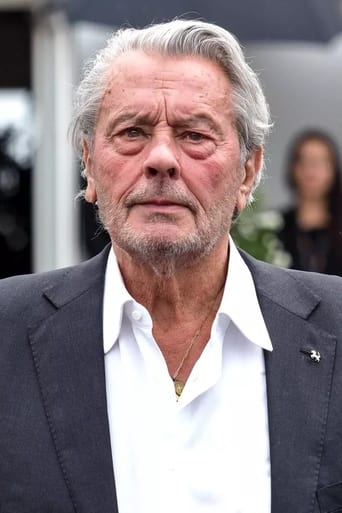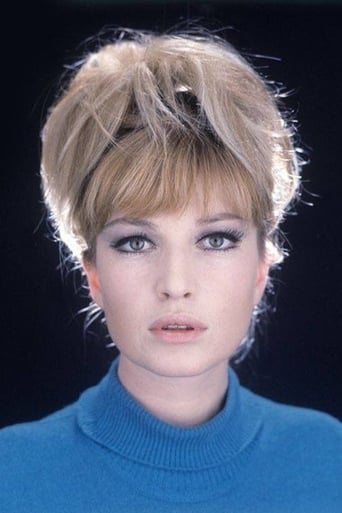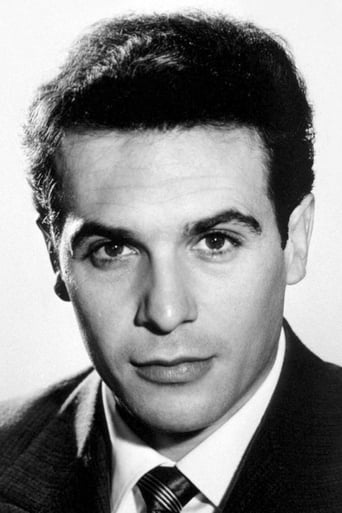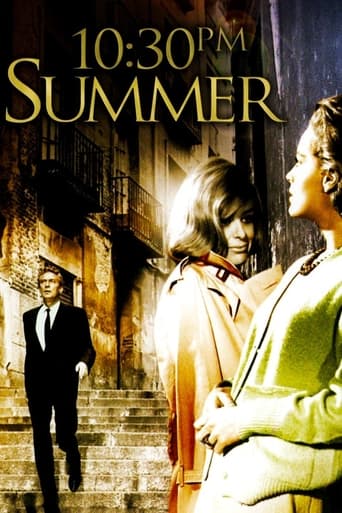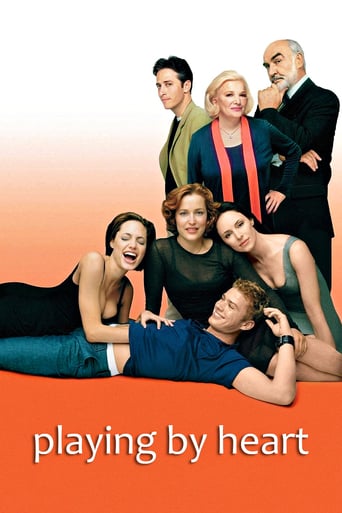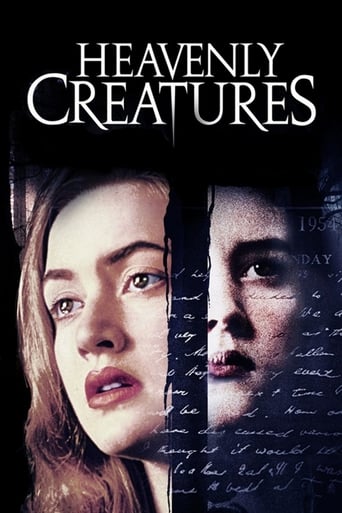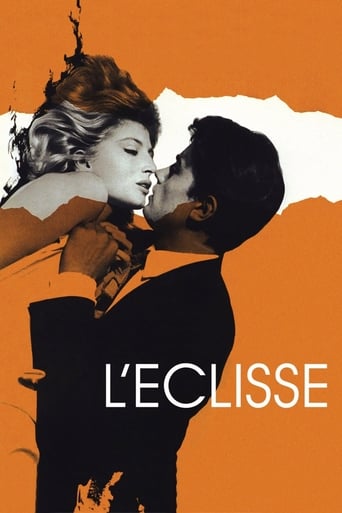
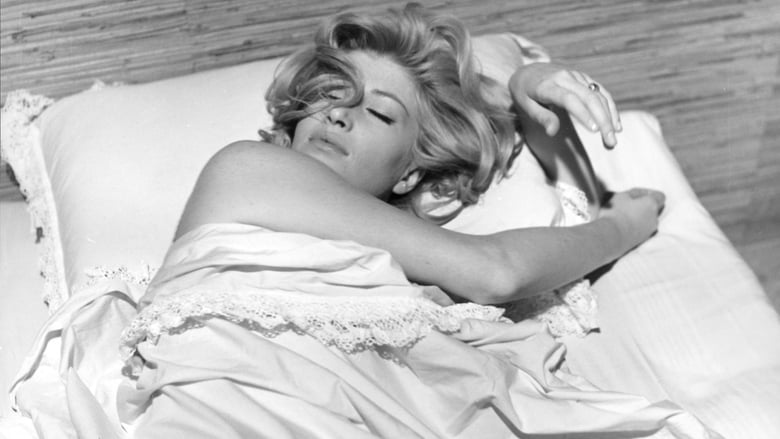
L'Eclisse (1962)
This romantic drama by Michelangelo Antonioni follows the love life of Vittoria, a beautiful literary translator living in Rome. After splitting from her writer boyfriend, Riccardo, Vittoria meets Piero, a lively stockbroker, on the hectic floor of the Roman stock exchange. Though Vittoria and Piero begin a relationship, it is not one without difficulties, and their commitment to one another is tested during an eclipse.
Watch Trailer
Cast
Similar titles
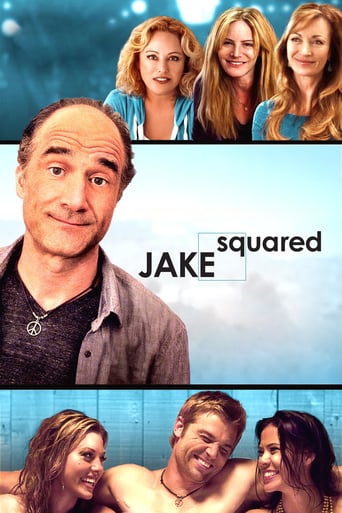
Reviews
Wonderful character development!
Terrible acting, screenplay and direction.
At first rather annoying in its heavy emphasis on reenactments, this movie ultimately proves fascinating, simply because the complicated, highly dramatic tale it tells still almost defies belief.
Exactly the movie you think it is, but not the movie you want it to be.
"Love" in modern society has always been a major point in Antonioni films, especially on his unofficial trilogy about Alienation (L'avventura, La Notte and L'eclisse)and his first color film "Red Desert", as well human loneliness, their emotional distance and futility is again amazingly represented in the last part of trilogy with "L'eclisse". At the surface, "L'eclisse" is one of Antonioni's simplest films, but it's not in the surface that makes the film so complex, but really in what is add on in the scenes. Vittoria (Monica Vitti) is a tired young woman that after ending her presumed failed relationship with Riccardo (Francisco Rabal) tries to search for a true relationship. The beginning shows us a great drama: a couple (Vittoria and Riccardo) who can no longer communicate with each other, the affection left between them is little, almost none, there is only left that great and agonizing silence which shows nothing positive about their relationship. Then later she tries to keep a relationship with Piero (Alain Delon) but their relationship itself already seems failed and empty, it seems more an attempt to fulfill their loneliness and emptiness. She, differently from the other characters of the film doesn't accept her failed relationship with men, her mother and even herself, which drives Vittoria in her endless and doomed journey trying to search for herself and affection. The film is realistic, and at the same time strangely surreal, like if a force of nature was directing the film (especially the character of Vittoria), wind blows and trees becomes in certain points of the film essential. Every scene, every object gains symbolism and a special importance in the film (as in practically all Antonioni films). Now coming to the extraordinary end sequence, which is easily one of the greatest in cinema history. Images of the locations were the main characters were, these haunting and strangely scary scenes shows us many things, one of them being human's eclipse, we see buildings and many manifestations of humans existence but yet we can not feel them, they seem cold, distant and bleak, as humans tend to be nowadays. Now the eclipse of human's emotion has finally (and unfortunately) happen.
In this, his third film about the boredom and alienation of modern society, Antonioni reaches new heights in boring and alienating his audience. While Monica Vitti is indeed a beautiful and charismatic screen presence, watching her wander aimlessly for over two hours quickly loses its appeal (Though I'll take it over watching Jeanne Moreau wander aimlessly for over two hours in "La Notte"). Occasional sparks of interest go nowhere, as in her quest to find the lost dog. The "African" sequence is far more shocking today than it was half a century ago, seeing how it flies in the face of today's overbearing political correctness. None of these episodes amount to much; we already get where Antonioni is going from the opening sequence in which the two lovers are monosyllabically calling it quits. If you enjoy watching paint dry and then analyzing a blank canvas, this film will provide lots of fodder.
From director Michelangelo Antonioni (L'Avventura, Blowup), this film listed in the book of 1001 Movies You Must See Before You Die sounded interesting enough, I obviously had no idea about the concept or what it would be about, in a way that was a good thing, I like to surprised. Basically the tale sees Vittoria (Monica Vitti) having an imperfect relationship with staunch intellectual Riccardo (Francisco Rabal) and suffering a breakup, and soon after attracting romantic feelings from stockbroker Piero (Alain Delon). She eventually gives in to her feelings for him as well and they begin a careful but uncertain love affair, her new man may not be intellectual but he is free of any complications, and he feels this is the same for her. But inner fears befall Vittoria and Piero, this draws them apart and any attempted expression of trying to recover the relationship just causes more problems and go against it lasting, it mainly comes from the lack of communication and long periods of silence. Also starring Lilla Brignone as Vittoria's Mother, Louis Seigner as Ercoli, Rossana Rory as Anita and Mirella Ricciardi as Marta. The acting is as good as you could expect, the direction is certainly well done as the plot flows in a different kind of way, I will confess that the story is confusing and it almost seems like there isn't one at all, but this is I suppose a draw because it relies on the silences to punctuate that sometimes couples cannot communicate at all with each other, so while it was slightly long and a little bleak it is a watchable alternative romantic drama. Good!
Going backwards through Antonioni's films, I encounter what is with the exception of Blowup his most famous film, one of the cornerstones at least. Forty years after it was made it stands as a prophecy of minimal cinema to come, an early configuration of what is possible to do with a certain kind of story, but sadly not much more.I like how he renders the morning after a painful breakup, with anguish and irritation in empty streets, but also with the aimless excitement of newfound freedom and time. Monica Vitti fills this time that would have been consumed before with the affairs of a relationship by strolling around, the world now a game of possibilities, where the lack of purpose and direction hold their own allure. Life can be anything again. This is not an opportunity to meditate though, but rather of becoming open again to the flow of life, see where desire will sweep us to.Summer is a character here, indeed in a way that prefigures the transparent realities that would emerge in Antonioni's later films, I can sense poignantly the hot languid mood of summer life in the city, at once inviting and arresting movement. But the romance that is supposed to carry the film after the world has been sketched is not up to the task. The two partners feign, thrust, fall in love, coy or anxious or excited, then withdraw. The flow of life doesn't stop for the dead and it does't stop for the lovers. Two scenes connected by the incessant ringing of telephones connect this. Perhaps the romance is not up to the task because Antonioni believes that love isn't, that the two partners brought close in communion are still worlds apart and love alone cannot hope to bridge the distance. We get the first inklings of the emptiness of desire, Antonioni would perfect this in his following film.The importance of all this is perhaps that in 1962 it was desirable to see a love story done this way. The novelty alone was thought enough to vindicate the experiment.But when Antonioni feels free to be as New Wave as he wants in the finale, the film soars. The symbolism of a barrel of water that represents something running out deafens the ears amid all the silence - it says too much and too little. But that silence of shots deserves to be admired, more Japanese than French.
